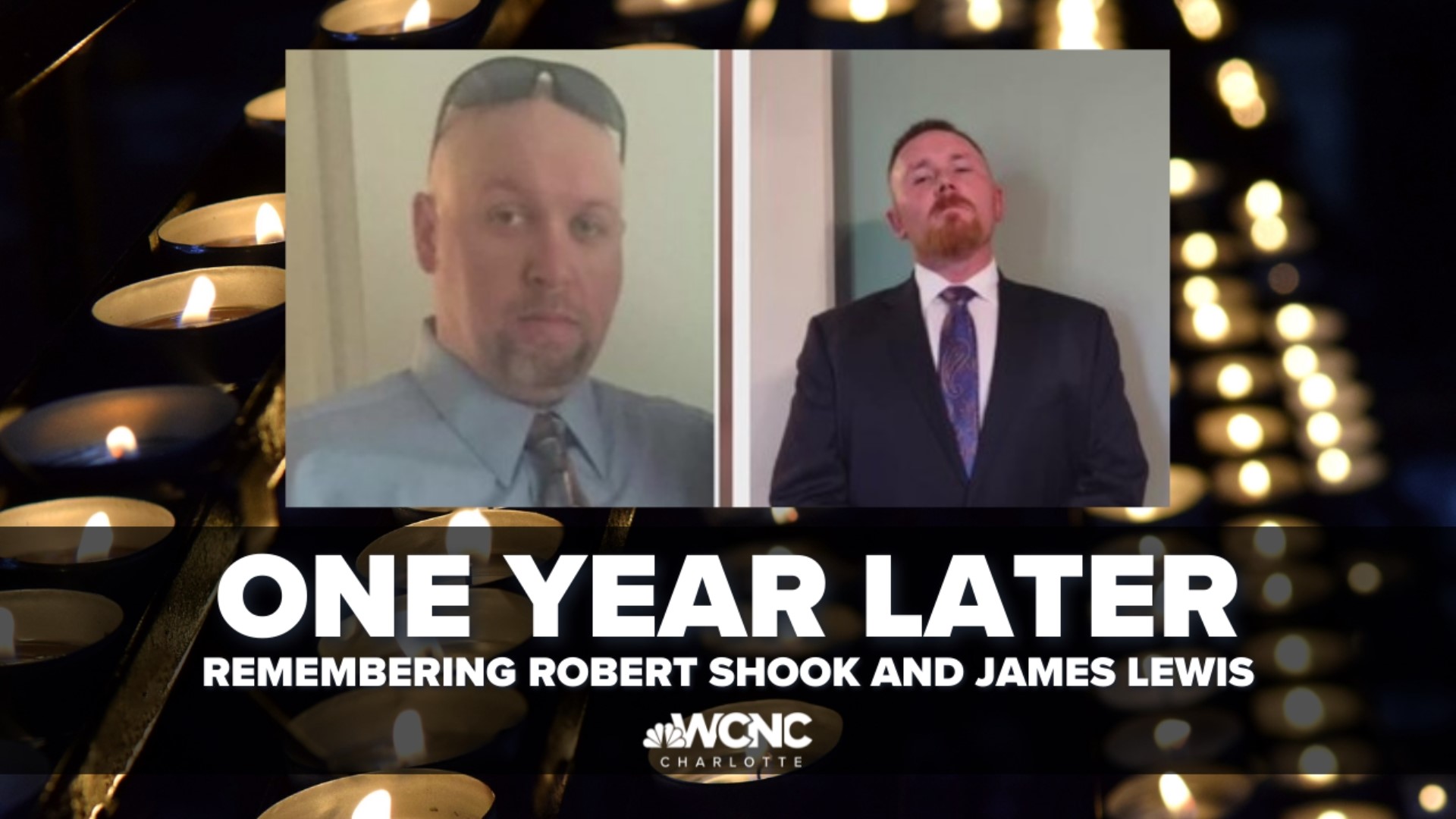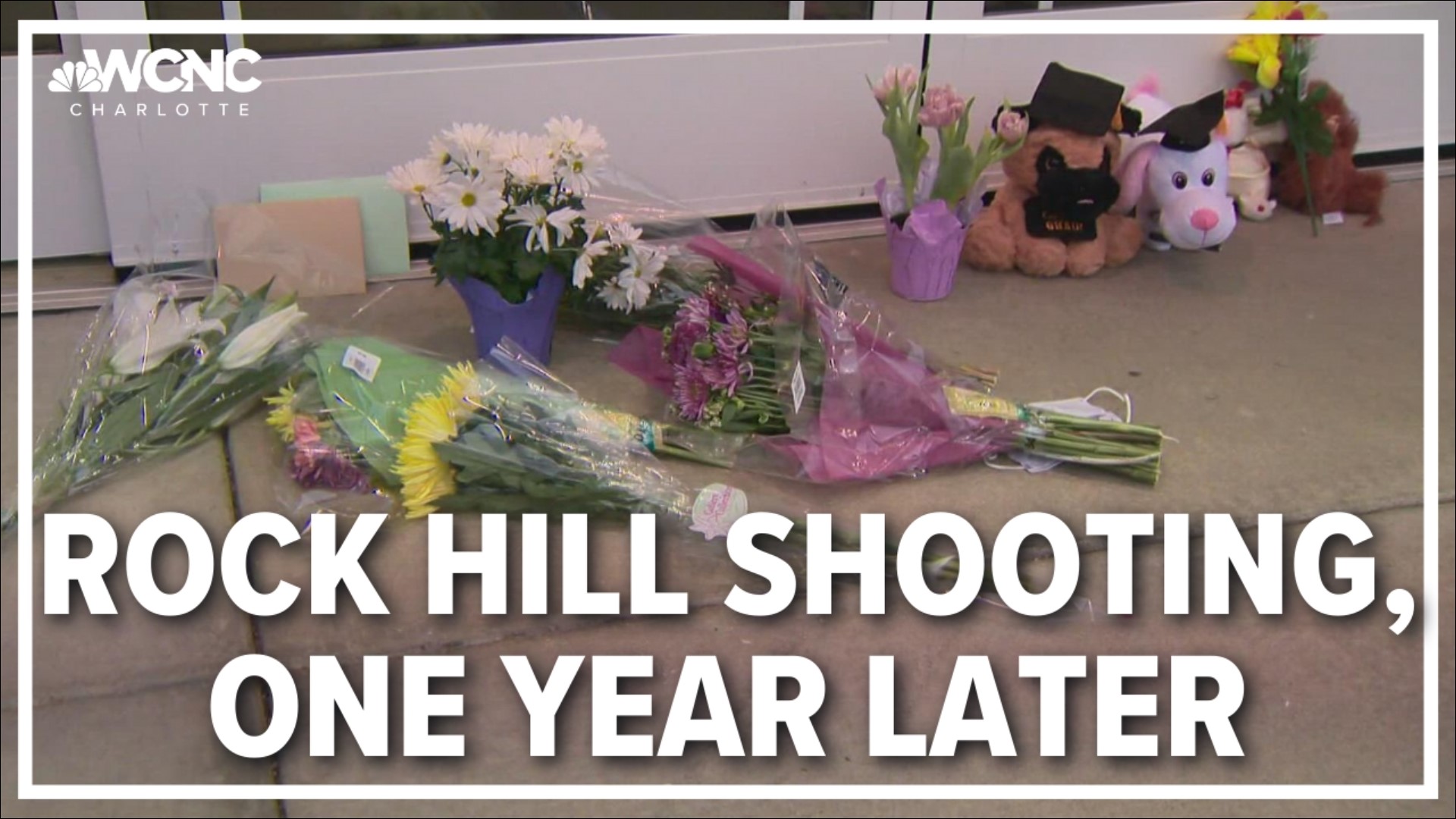One year later, community remembers 6 killed in Rock Hill shooting
Among the victims were Rock Hill doctor Robert Lesslie, Barbara Lesslie, Adah Lesslie, Noah Lesslie, Robert Shook and Tom Lewis.
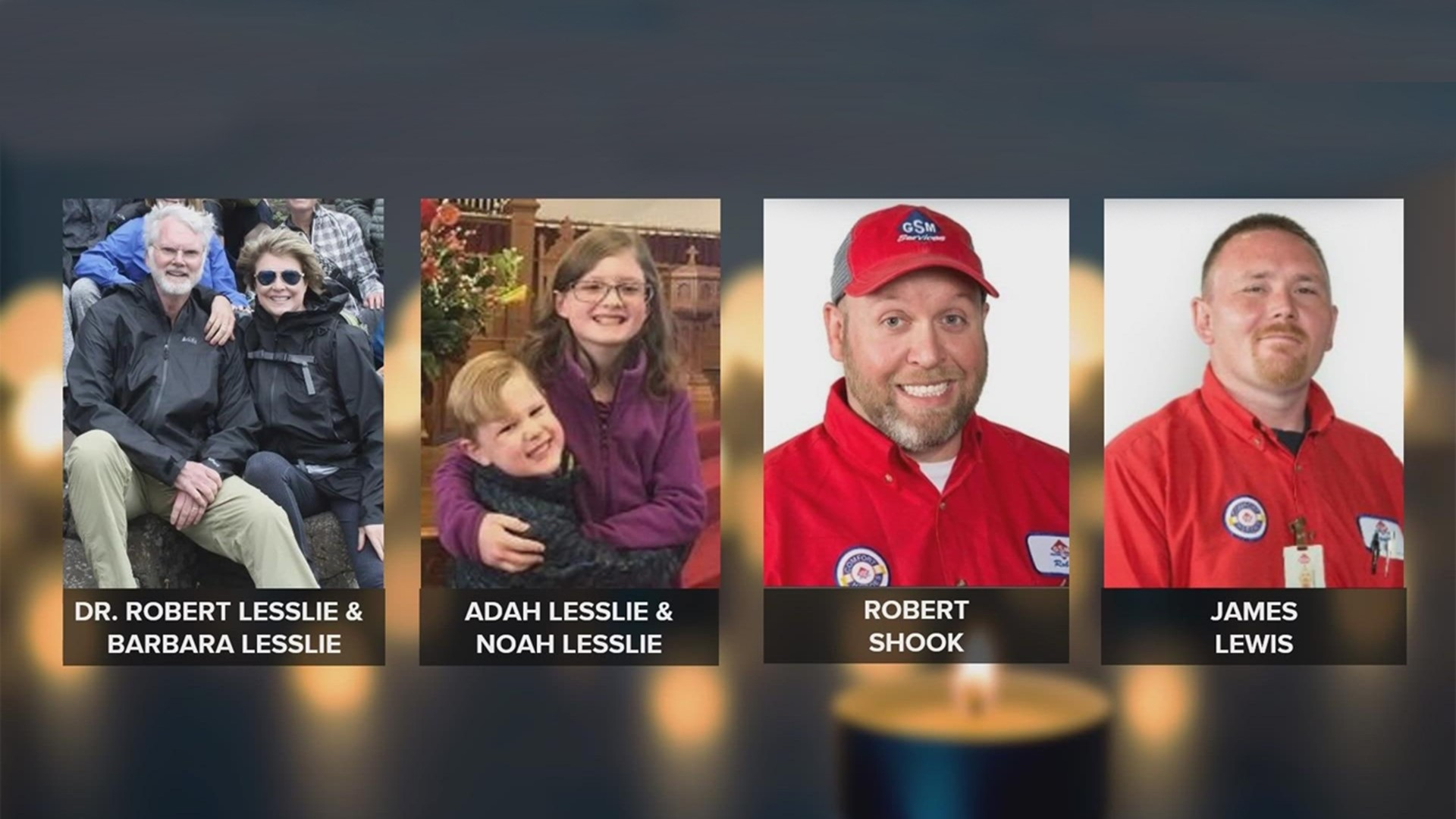
Thursday marks a year since police say former NFL player Phillip Adams killed six people at a home on Marshall Road in Rock Hill before taking his own life.
The victims were Dr. Robert Lesslie, his wife, Barbara Lesslie, their two grandchildren -- Adah, 9, and Noah, 5 -- as well as James Lewis and Robert Shook. Lewis and Shook were at the Lesslie home to do HVAC work.
One year later Learning to live with grief
In the twelve months that have passed since that day, the families of the victims have struggled to cope with the loss.
FROM APRIL 2021: Rock Hill community honors those killed in mass shooting
Thomas Lewis, who is the father of James Lewis, said time doesn't heal all wounds, but he's learning to live with the loss.
“It’s an understatement to say that there’s not a day that goes by that I don’t think about him," Lewis said. "There’s really not an hour that goes by."


Lewis said his son was a single father to three children. The 38-year-old dedicated his life to his parents, his children, and the woman he planned to marry.
The elder Lewis said his life changed drastically since that day; his health has deteriorated and he suffers from insomnia. And when he does sleep, he dreams of his son, who was his best friend.
“He liked to laugh, he loved good jokes, he loved pranks, he loved to fish," Lewis said. "No parent should outlive their child."
Lewis shares his pain with the Lesslie and the Shook families.

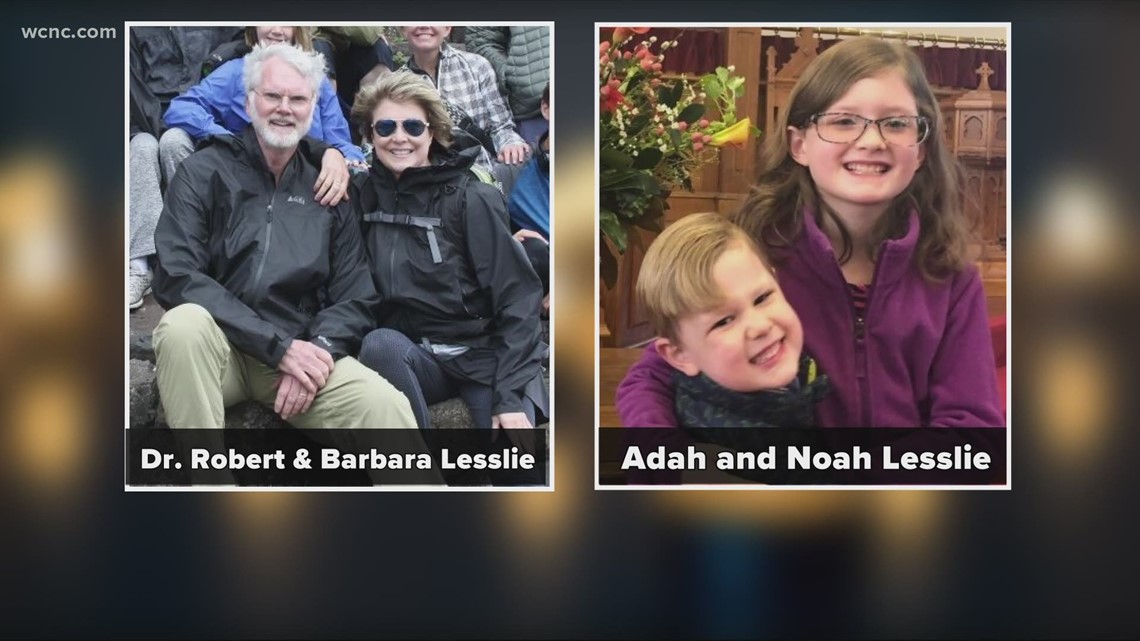
Dr. Robert Lesslie was a prominent doctor in Rock Hill. He treated patients at Riverview Family Medicine & Urgent Care.
Jeff Lesslie, who lost his parents and his two children, said this in a statement shared with WCNC Charlotte:
"It has been a year since our community came face to face with the unbelievable. In the minutes, days, and months since, our family has remained fixed on the eternal hope we have in Christ. The following statement that we shared after the event remains true to this day. It has helped to guide us deeper into fellowship with one another in love. As CS Lewis has said, 'come further up, come further in.'

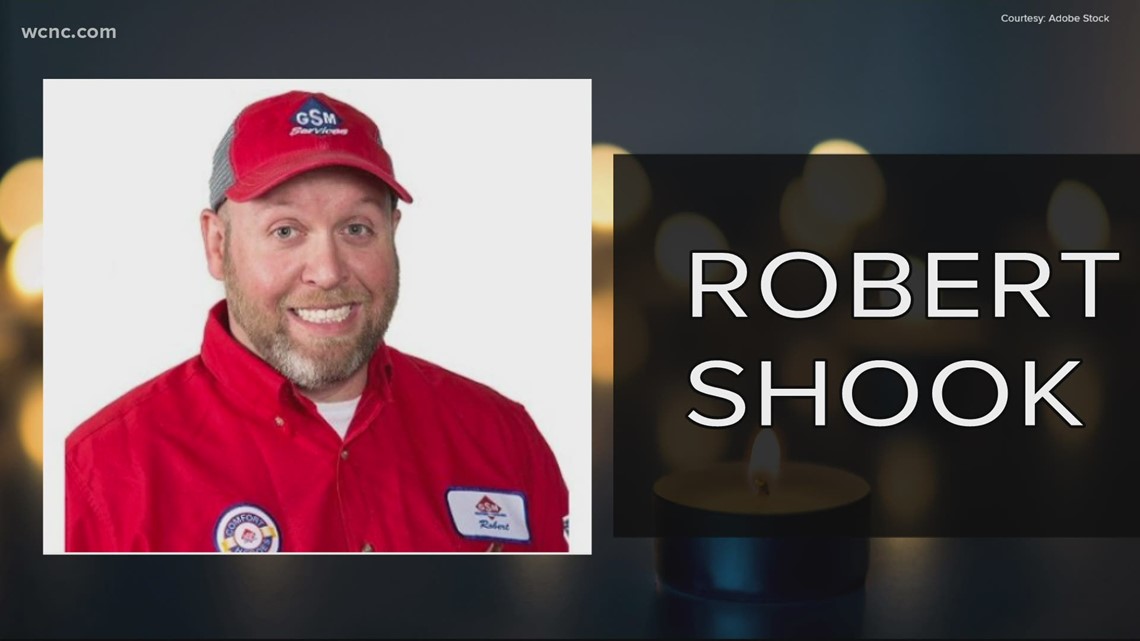
Leaving a legacy Community remembers loved ones
After the shooting, a GoFundMe was started for the families of Robert Shook and James Lewis. It raised $400,000, which was split evenly between the families.
On Thursday, Thomas Lewis said GSM Services, where Robert Shook and James Lewis worked, held a ceremony to remember the two men.
The Lesslie family were longtime members of the First ARP Church in Rock Hill. Barbara and Robert Lesslie sang in the choir. The church opened its doors on Thursday for a day of prayer. Anyone was welcome to mourn and pay their respects.
The Lesslie family also established a little library and a food pantry outside of the church named after 9-year-old Adah and 5-year-old Noah. Both children attended the First ARP Church in Rock Hill along with their parents and grandparents.


“Adah loved to read, and so that was the thought behind the library, and Noah loved snacks and food. So that was the thought behind the snack shack" Associate Pastor Jon Oliphant explained. "The desire in them and their family was always to be a blessing. That family, prior to the events last April, loved people well in the community and would seek to go out of their way to help others.”
Dr. Robert Lesslie's medical office continues to operate. In the days after his death, it turned into a memorial with people leaving flowers and notes in honor of a doctor who was well known and well-loved.
Motive unclear Autopsy found Phillip Adams had CTE
A year later, detectives said they still don’t know why former NFL football player Phillip Adams went to the Lesslie home and killed six people before taking how own life. However, a donation by his family could lead to future medical advances.
In search of answers, Adams’ family donated his brain to Boston University’s CTE Center, where Dr. Ann McKee found he suffered from a severe case of a brain disease most often seen in athletes.
Dr. McKee is the director of the center and said CTE is caused by repetitive blows to the head. She said Adams had a severe case of it.
“There's just no question that the study of Phillip Adams' brain and then talking to his relatives and friends about what he was like during life was enormously helpful to our research," McKee said.
Adams played football for most of his life, including six years in the NFL. When he ended his professional career in 2015 with the Atlanta Falcons he had several documented injuries.
McKee believes repetitive blows to the head, even low-impact injuries, caused Adams to develop the brain disease. Unfortunately, right now CTE can only be diagnosed after death.
“They become impulsive, they lose their self-control, they have aggressive and violent tendencies that they can't check down," McKee said of those individuals with CTE.
Last December, Adam's family shared how hard it was to get the help they knew he needed.
“That's what I really think we need to address: all the people who have fallen through the cracks and are in desperate need of help," McKee said.
McKee said researchers are closer than ever to find a way to detect CTE in the living but there is still more to be done.
Contact Indira Eskieva at ieskieva@wcnc.com and follow her on Facebook, Twitter and Instagram.


